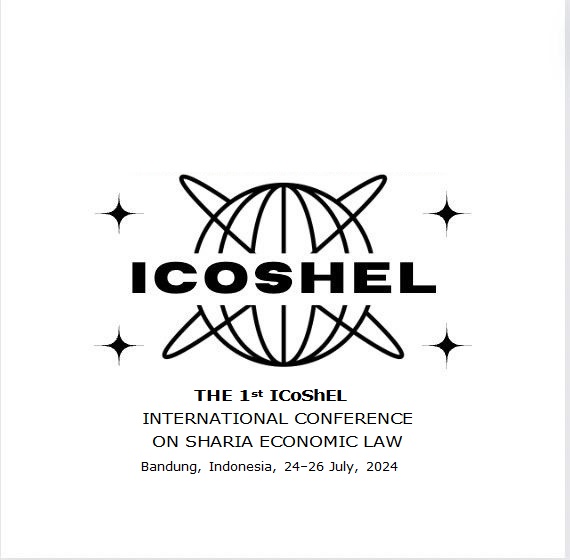The Concept of Profit In Syirkah Al-‘Inān Islamic Economic Perspective
Study at People's Banks Ipoh, Perak Malaysia
DOI:
https://doi.org/10.47766/alhiwalah.v2i2.1948Keywords:
Islamic banking,, Musyarakah, and Project finance.Abstract
This research is about studying the concept of "advantages of syirkah al-inan from the perspective of the Islamic Economic System". To achieve the above objectives, the author applied the following methodology in his research: Collecting data/information from a number of libraries and institutions; Field studies by studying Bank Rakyat data to add the information needed. The interview method is used to conduct interviews with respondents who are directly involved with the research topic, for example Managers and Sharia Administrators at the bank; and Relying on the Al-Quran, Hadith, opinions of Ulama whose opinions have been embedded in famous books and studies carried out by contemporary Islamic thinkers. Based on this research, the author is able to understand the concept of profit in syirkah al-Inan from an Islamic economic perspective. The author found that musyarakah or syirkah is a form of cooperation between two or more people to carry out a business or activity motivated by profit. Musyarakah is an instrument offered by Bank Rakyat. Therefore, this research will describe the problem of syirkah al-inan from the perspective of Islamic law and its application, especially at Bank Rakyat and conclude whether the concept used is in accordance with Islamic sharia or not. If we observe the opinions of the schools of thought we find that there are two main concepts in profit sharing. Based on the Syafie school of thought, profit sharing is based on the ratio of capital injected by partners. The second profit sharing concept is based on what has been previously agreed without reference to the ratio of capital injected. The second concept is based on the Imam Hanafi school of thought. Based on observations made, it was found that Bank Rakyat has implemented the Islamic Sharia Banking concept, especially in the problem of profit distribution in its musyarakah products. Therefore, the issue of profit sharing is very important not only as an index to determine the success or failure of a partnership, but also as a benchmark that the targeted profits for the company have been achieved. Therefore, the model used in sharing profits based on sharia requires a clear response and never fails. The author hopes that this research can become a useful guide for society
References
Abdullah bin Umar al-Baidawi, (t.t) al-Ghayah al-Quswa fi dirayah al-Fatwa, `Ali Muhyiddin `Ali al-Qurratu Daghi, Saudi: Dar al-Islah.
Abd al-Raḥmān al-Jazirī, (n.t), al-Fiqh 'Ala Madhāhib al-Arba'ah, Juz III, Egypt: Dār Ihya al-Thurath al-Arabī.
Abū Dawūd, (n.t.) Sunan Abū Dawūd, kitab al-Buyū’ wal Ijărāt, Bab al-Syirkah, vol. 3, no. hadith 3383, Beirut: Dar al-Fikr.
Abū Yusūf Ya‛kūb bin Ibrahῑm (n.t.), al-Kharāj, Beirut: Dār al-Ma‛rifah.
Ahmad Mustaq, Business Ethics in Islam, (Jakarta: Pustaka al-Kautsar: 2005).
Afzalurrahman, Muhammad as a Trader, (Jakarta: Swarna Bhumy Foundation: 1996).
Amelia, Farissa, and Nazaruddin Nazaruddin. “Aktivitas Bisnis Dalam Tinjauan Aspek Hukum Perjanjian.” Al-Hiwalah: Journal Syariah Economic Law 1, no. 2 (2022): 171–82.
Bank Kerjasama Rakyat Malaysia Berhad (People's Banks) Info www.bankrakyat,com.my 4 March 2014.
Chapra, Umar, Islamic Monetary System, (Jakarta: Gema Insani & Tazkia Cendikia, 2000).
Zulhamdi, Husnaini,. “Aspek Hukum Perjanjian Dalam Aktivitas Bisnis.” Al-Hiwalah: Journal Syariah Economic Law 1, no. 1 (2022): 75–84.
Results of interviews with Mohd. Hanafiah bin Mohd. Nawawi, Sharia Employee of the People's Banks Kuala Lumpur Official Supervision Section, 10 May 2013.
Results of interviews with Mohd. Mawerdi bin Sairi, Sharia Officer of the Supervision Division of People's Banks Kuala Lumpur Headquarters, on May 4 2013.
Results of an interview with Rizal Bin Radzi, Assistant Management of People's Banks Cawangan Ipoh, Perak, 16 January 2014.
Results of an interview with Zaida bint Khairuddin, Head of the Communications Unit of People's Banks Ipoh Perak branch, on 18 August 2013.
Kamāl al-Dīn Muḥammad bin ʻAbd al-Waḥad al-Siwāsī, (n.t), Fatḥ al-Qādir, Juz V. Beirut: Dār al-Fikr.
Muḥammad bin Idrīs al-Shafi‛ī, (n.t), al-Um, juz III, Beirut, Lebanon: Dār al-Fikr.
Sayyīd Sabiq, (1987), Fiqh al-Sunnah, Vol. 3, Beirut: Dār al-kitab al-Arabi.
Shams al-Dīn al-Sarakhsī (n.t), al-Mabsūṭ, Juz II. Beirut: Dār al-Kutub al-̕Ilmiyyah.
Wahyuna, Sari, and Zulhamdi Zulhamdi. “Perbedaan Perbankan Syariah Dengan Konvensional.” Al-Hiwalah: Journal Syariah Economic Law 1, no. 2 (2022): 183–96.
Yusriadi, Yusriadi. “Aturan Utang Dalam Akad Pembiayaan Mudharabah Pada Bank Syariah.” Al-Hiwalah: Journal Syariah Economic Law 1, no. 1 (2022):18. https://doi.org/https://doi.org/10.47766/alhiwalah.v1i1.881.
Zulhamdi, Business Law, Medan: Pusdikra 2021.
Downloads
Published
Issue
Section
License
Copyright (c) 2023 Athailah Junaidy, Ikbal, Zulhamdi

This work is licensed under a Creative Commons Attribution-NonCommercial-ShareAlike 4.0 International License.







